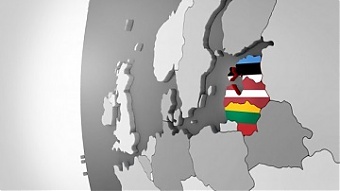Analytics, Banks, Direct Speech, Financial Services, Lithuania
International Internet Magazine. Baltic States news & analytics
Friday, 06.02.2026, 23:19
Vasiliauskas: Cherry-picking banks to face competition from smaller market players
Bank of Lithuania, 30.11.2020. Print version
Print version
 Print version
Print versionThe recent mergers of commercial banks in the Baltic States as well as withdrawal of some foreign banks have led to higher market concentration, yet opened the door to smaller market participants and alternative finance providers. The competitive environment in the financial sector will be discussed today at the virtual meeting of the Governors of the Baltic central banks.
 |
|---|
“With time, smaller banks, fintech start-ups and alternative finance providers, e.g. crowdfunding or peer‑to-peer lending platforms, are seen to replace the banks that have withdrawn from the Baltic markets or those engaged in cherry-picking, i.e. providing their services exclusively to low-risk customers. Although they are still considered to be niche market participants, their potential to boost business and household financing opportunities is rapidly growing,” said Vitas Vasiliauskas, Chairman of the Board of the Bank of Lithuania.
According to him, it is particularly important to ensure adequate access to credit during the pandemic. To this end, the Bank of Lithuania has temporarily eased some of its capital requirements for banks, actively supported the moratorium allowing businesses and households to defer their loan repayments as well as employed monetary policy measures to provide financial institutions with access to low-cost credit.
Mr Vasiliauskas also emphasised that the Bank of Lithuania and the central banks of other Baltic States were implementing measures to create a more competition-conducive regulatory environment. For instance, Lithuania was among the first EU Member States to adopt a law regulating crowdfunding activities. Cooperation between the Bank of Lithuania and other public sector institutions helps attract innovative fintech companies to the country.
In 2018–2019, with some banks narrowing their business scope or even withdrawing from the Baltic markets, interest rates increased, which consequently led to more active lending by smaller market participants, the share of which in the total credit portfolio has been on an upward trajectory in all Baltic States.
Smaller players of the Lithuanian financial market – banks, credit unions and non-bank creditors – were active in lending to both the household and corporate sectors. Competition in the housing loan market has recently intensified when one reorganised bank, two smaller banks and some credit unions expanded their provision of new loans. In Lithuania, the share of smaller housing lenders in the total flow of new loans increased five-fold from about 3% in 2017–2018 to almost 16% in the second half of 2020.
In recent years, the share of smaller banks and non-bank financial institutions providing credit to businesses has been constantly growing. Significant developments can be observed in activities related to factoring and financing of commercial real estate. Funding through specialised platforms has also gained momentum, having attracted several hundreds of projects with a total envelope of tens of millions of euro per year, while the portfolio of assets managed by funds intended for informed investors that mainly invest in Lithuanian companies and real estate has grown by more than 40% over the last two years and is currently approaching €1 billion.
In the long term, the increasing number of market newcomers will further widen the array of available funding sources. Over the past several years, the Bank of Lithuania has granted 5 specialised bank licences, more than 120 electronic money and payment institution licences and 22 licences for crowdfunding and peer-to-peer lending platforms. Some of the licensed institutions have already commenced provision of services, while some of them are actively preparing to start their activities.
During the annual meetings, Governors of the Baltic central banks exchange their experience and views on common issues as well as their potential solutions. This year’s virtual meeting will also include assessment of the current stance of the Baltic economies and response to the economic fallout from COVID-19. The meeting participants will discuss their positions on EU‑wide initiatives, such as digitalisation of finance, promotion of smart payments and development of the European capital market.
Other articles:
- 25.01.2021 Как банкиры 90-х делили «золотую милю» в Юрмале
- 29.12.2020 В Латвии вводят комендантский час, ЧС продлена до 7 февраля
- 29.12.2020 В Rietumu и в этот раз создали особые праздничные открытки и календари 2021
- 29.12.2020 Latvia to impose curfew, state of emergency to be extended until February 7
- 29.12.2020 Linde Gas открывает завод в Кедайняйской СЭЗ
- 29.12.2020 Lithuanian president signs 2021 budget bill into law
- 29.12.2020 Президент Литвы утвердил бюджет 2021 года
- 28.12.2020 Рынок недвижимости Эстонии осенью начал быстро восстанавливаться
- 28.12.2020
- 28.12.2020 Tartu to support students' solar car project








 «The Baltic Course» Is Sold and Stays in Business!
«The Baltic Course» Is Sold and Stays in Business!

